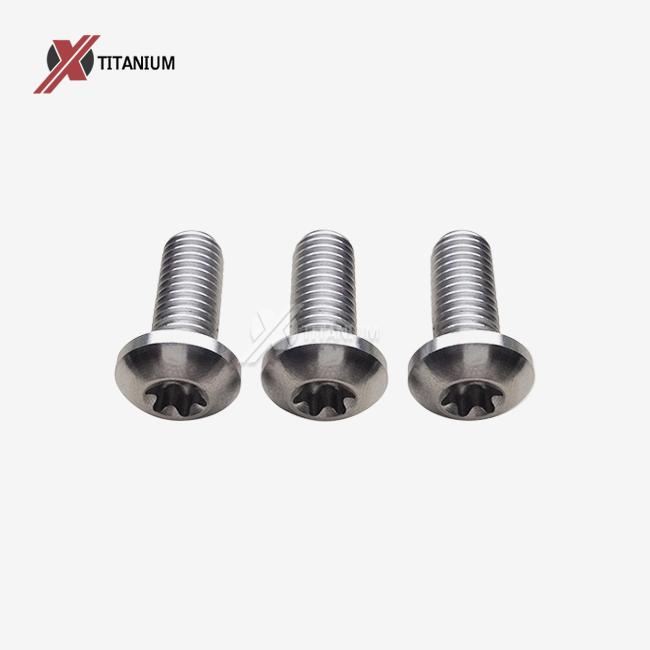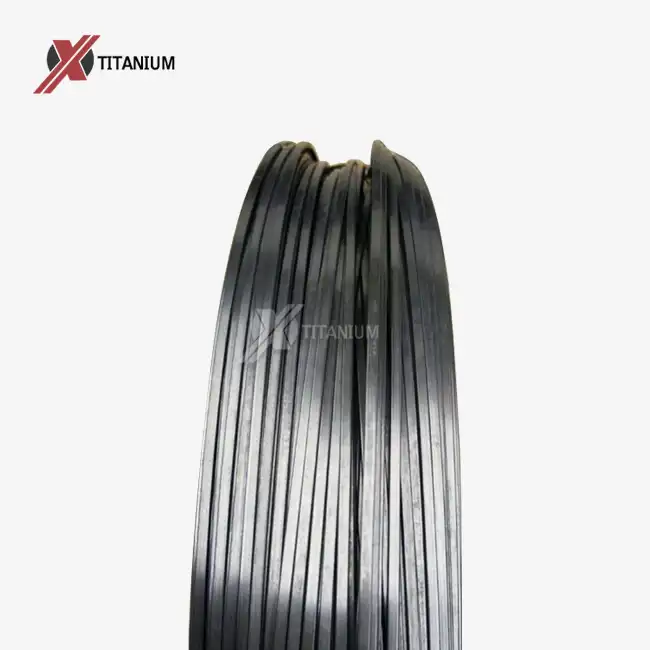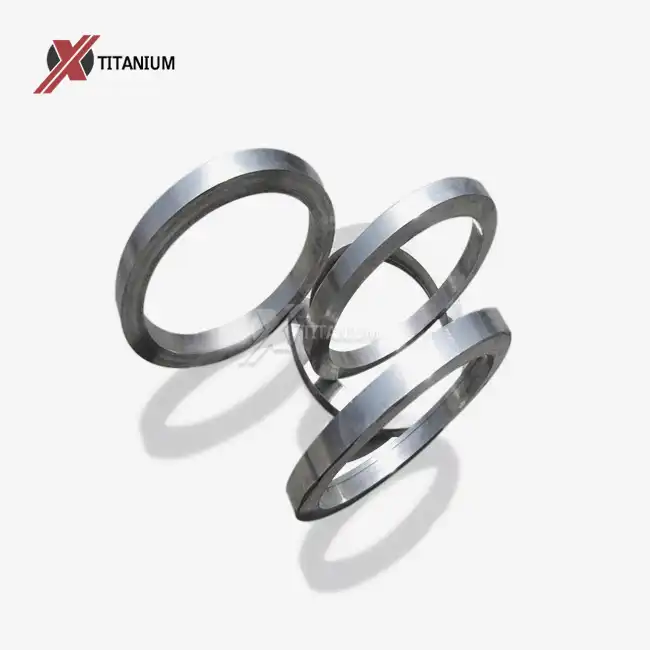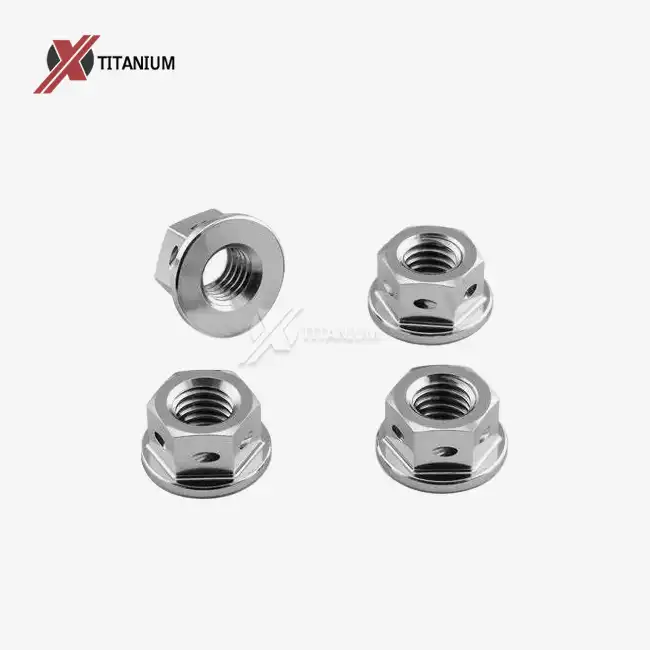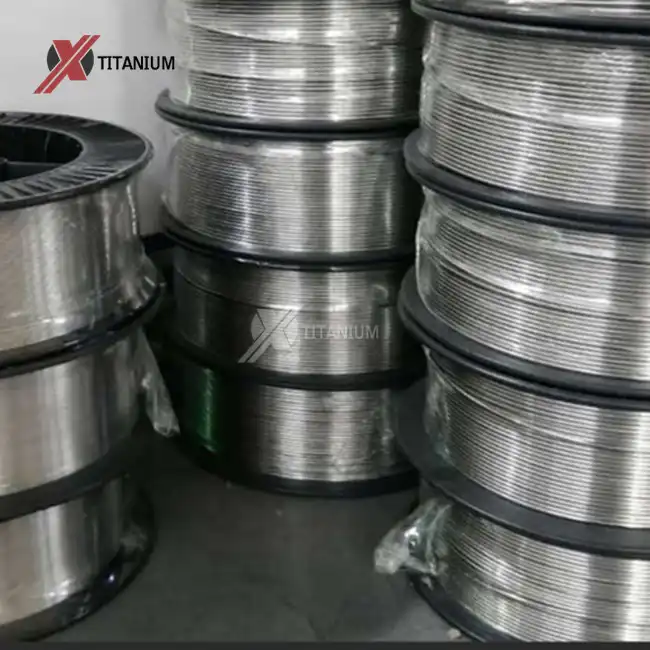Advantages of Titanium Button Head Screws in Specific Applications
Aerospace Industry: Lightweight and Durable Solutions
The aerospace industry stands as a prime beneficiary of titanium button head screws. These fasteners play a pivotal role in aircraft and spacecraft construction, where every gram matters. Titanium's exceptional strength-to-weight ratio allows engineers to design lighter yet robust structures, translating to improved fuel efficiency and payload capacity. Moreover, the inherent corrosion resistance of titanium ensures longevity in the harsh conditions encountered at high altitudes, including extreme temperature fluctuations and exposure to various atmospheric elements.
Satellite manufacturers also leverage titanium button head screws for their thermal stability. The material's low thermal expansion coefficient minimizes stress on joints during the rapid temperature changes experienced in orbit. This property is crucial for maintaining the structural integrity of sensitive equipment in space applications.
Marine Environments: Combating Corrosion
In marine applications, titanium button head screws reign supreme due to their unparalleled resistance to saltwater corrosion. Traditional fasteners often succumb to the relentless assault of saltwater, leading to rapid deterioration and potential structural failures. Titanium, however, forms a protective oxide layer when exposed to oxygen, effectively shielding the underlying metal from corrosive elements.
Shipbuilders and offshore platform operators increasingly turn to titanium fasteners for critical components exposed to seawater. From hull fittings to deck equipment, these screws maintain their integrity in environments where other materials falter. The longevity of titanium button head screws in marine settings translates to reduced maintenance costs and enhanced safety for maritime operations.
Medical Devices: Ensuring Biocompatibility and Longevity
The medical field harnesses the unique properties of titanium button head screws for a variety of implants and devices. Titanium's biocompatibility makes it an ideal choice for orthopedic implants, dental prosthetics, and neurosurgical devices. The human body readily accepts titanium, reducing the risk of rejection or adverse reactions commonly associated with other metals.
Furthermore, the durability of titanium ensures that medical implants can withstand the rigors of daily use over extended periods. This longevity is particularly crucial in joint replacements and spinal fusion devices, where the failure of a fastener could necessitate invasive revision surgeries. The non-magnetic nature of titanium also allows patients with titanium implants to safely undergo MRI scans, a significant advantage in modern medical diagnostics.
Performance Enhancement in High-Stress Environments
Automotive Racing: Pushing the Limits of Speed and Endurance
In the high-octane world of automotive racing, every component must contribute to performance enhancement. Titanium button head screws have become indispensable in this arena, offering a perfect blend of strength and weight reduction. Racing teams utilize these fasteners in engine components, suspension systems, and body panels to shave off precious grams without compromising structural integrity.
The heat resistance of titanium proves invaluable in engine applications, where temperatures can soar to extreme levels. Unlike some alternatives, titanium button head screws maintain their mechanical properties under these conditions, ensuring reliable performance throughout grueling races. The material's fatigue resistance also contributes to the longevity of critical components subjected to repeated stress cycles.
High-Performance Bicycles: Balancing Strength and Weight
The cycling industry, particularly in the high-performance and competitive sectors, has embraced titanium button head screws wholeheartedly. These fasteners allow manufacturers to create bicycles that are both incredibly light and remarkably strong. From frame construction to component assembly, titanium screws contribute to the overall weight reduction that can make the difference between victory and defeat in professional racing.
Beyond weight savings, the corrosion resistance of titanium proves advantageous for bicycles exposed to various weather conditions. Cyclists undertaking long-distance tours or competing in multi-stage races benefit from the reliability of titanium fasteners, which remain impervious to rain, sweat, and road grime that can compromise lesser materials.
Outdoor and Recreational Equipment: Durability in Extreme Conditions
Manufacturers of outdoor and recreational equipment increasingly turn to titanium button head screws to enhance the durability and performance of their products. Camping gear, hiking equipment, and survival tools benefit from the corrosion resistance and strength of titanium fasteners. These properties ensure that equipment remains functional and safe even when exposed to harsh environmental conditions, including humidity, temperature extremes, and abrasive elements.
In the realm of water sports, titanium button head screws find applications in diving equipment, surfboards, and kayaks. The material's resistance to saltwater corrosion and its non-magnetic properties make it an excellent choice for these applications, where reliability and safety are paramount.
Considerations for Implementing Titanium Button Head Screws
Cost-Benefit Analysis in Industrial Applications
While the benefits of titanium button head screws are numerous, their implementation often requires a careful cost-benefit analysis. The initial cost of titanium fasteners typically exceeds that of more common materials like steel or aluminum. However, the long-term advantages, including reduced maintenance, extended lifespan, and improved performance, can offset the higher upfront investment.
Industries with stringent safety requirements or those operating in corrosive environments often find that the total cost of ownership for titanium fasteners is lower than that of alternatives when factoring in replacement and maintenance expenses. Additionally, the weight savings offered by titanium can translate to significant operational cost reductions in applications where fuel efficiency is a critical factor.
Design Considerations and Material Compatibility
Implementing titanium button head screws requires careful consideration of design parameters and material compatibility. Engineers must account for titanium's unique properties, such as its lower modulus of elasticity compared to steel, when determining torque specifications and stress distributions. The galvanic corrosion potential between titanium and dissimilar metals must also be addressed through proper insulation or compatible material selection for mating components.
Furthermore, the specific grade of titanium alloy chosen for the screws can significantly impact performance characteristics. For instance, the commonly used Ti-6Al-4V alloy offers an excellent balance of strength and machinability, making it suitable for a wide range of applications. However, specialized alloys may be necessary for extreme environments or specific performance requirements.
Maintenance and Inspection Protocols
While titanium button head screws boast impressive durability, implementing proper maintenance and inspection protocols remains crucial for ensuring long-term reliability. Regular visual inspections can identify potential issues such as thread damage or signs of galvanic corrosion. In critical applications, non-destructive testing methods like ultrasonic inspection may be employed to detect hidden flaws or fatigue damage.
Proper torque management is essential for maintaining the integrity of titanium fastener installations. Over-tightening can lead to galling or thread deformation, while under-tightening may result in joint failure. Implementing and adhering to precise torque specifications, often with the use of calibrated torque tools, is vital for maximizing the performance and longevity of titanium button head screws.
Conclusion
Titanium button head screws have revolutionized fastening solutions across numerous industries, offering unparalleled strength, corrosion resistance, and weight reduction. From aerospace and marine applications to medical devices and high-performance sports equipment, these versatile fasteners continue to push the boundaries of what's possible in engineering and design.
As technology advances and new challenges emerge, the role of titanium button head screws in critical applications is likely to expand further, driving innovation and performance improvements across diverse sectors. For more information about titanium products and their applications, please contact us at info@cltifastener.com or djy6580@aliyun.com.
